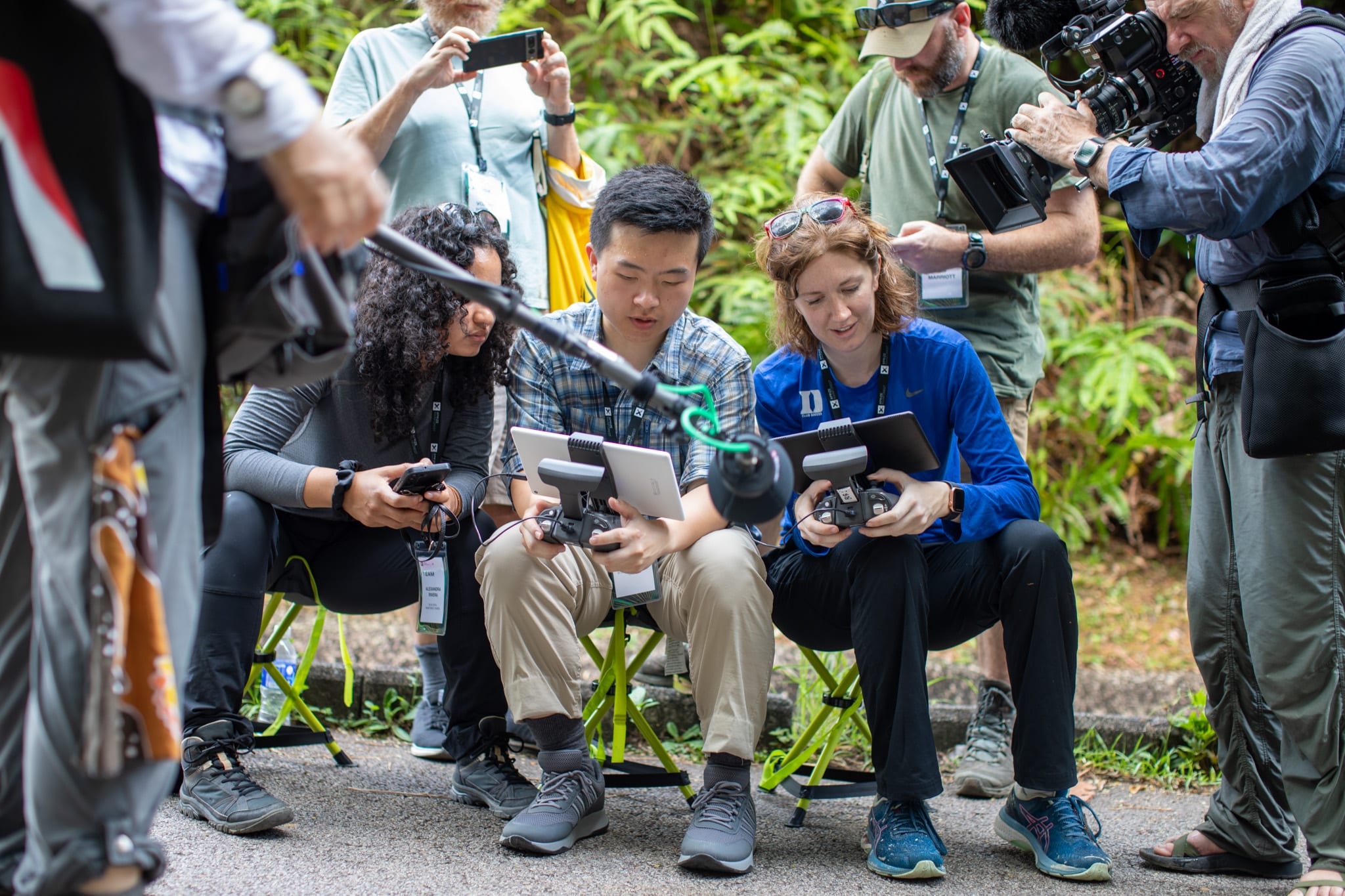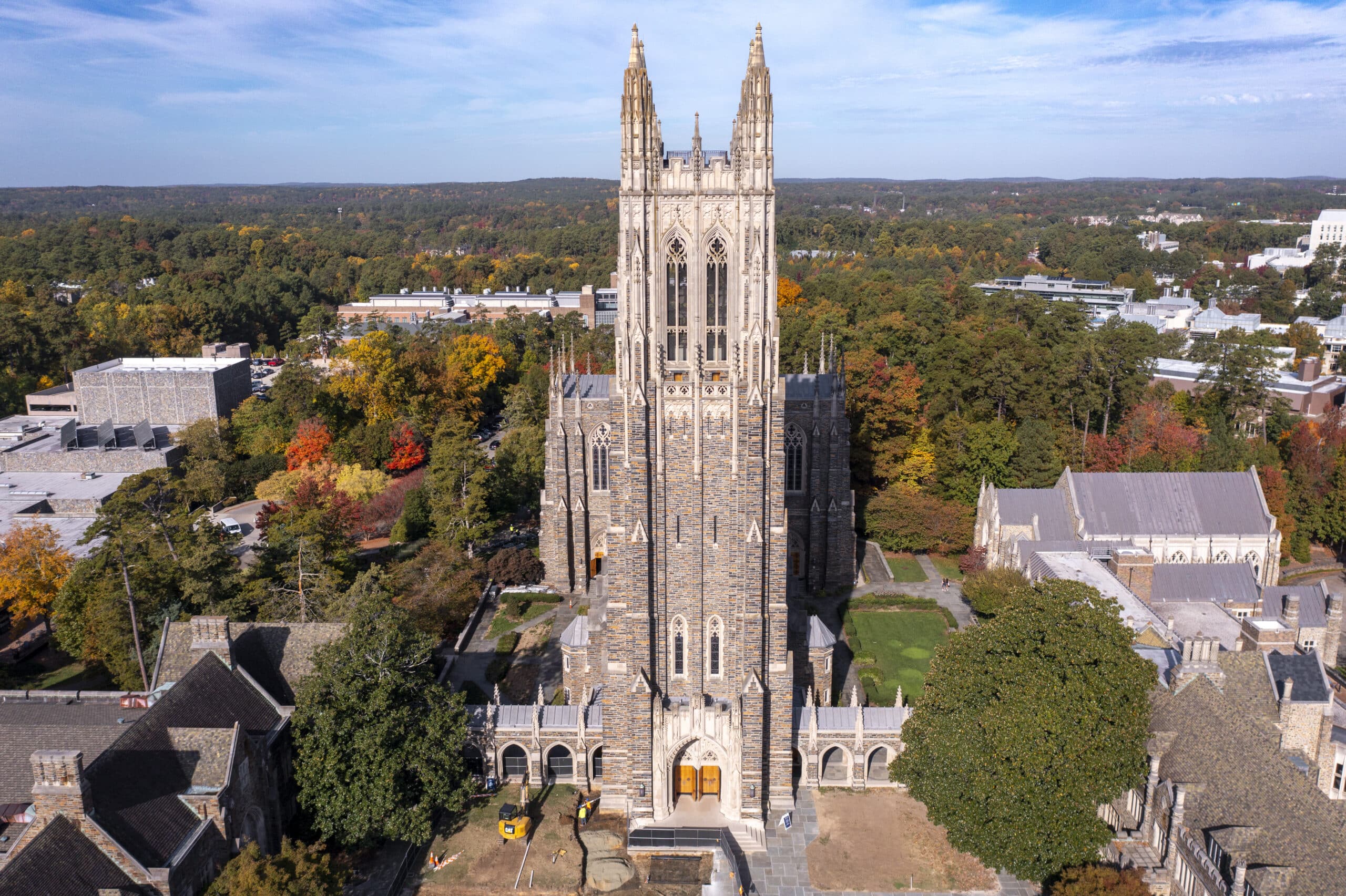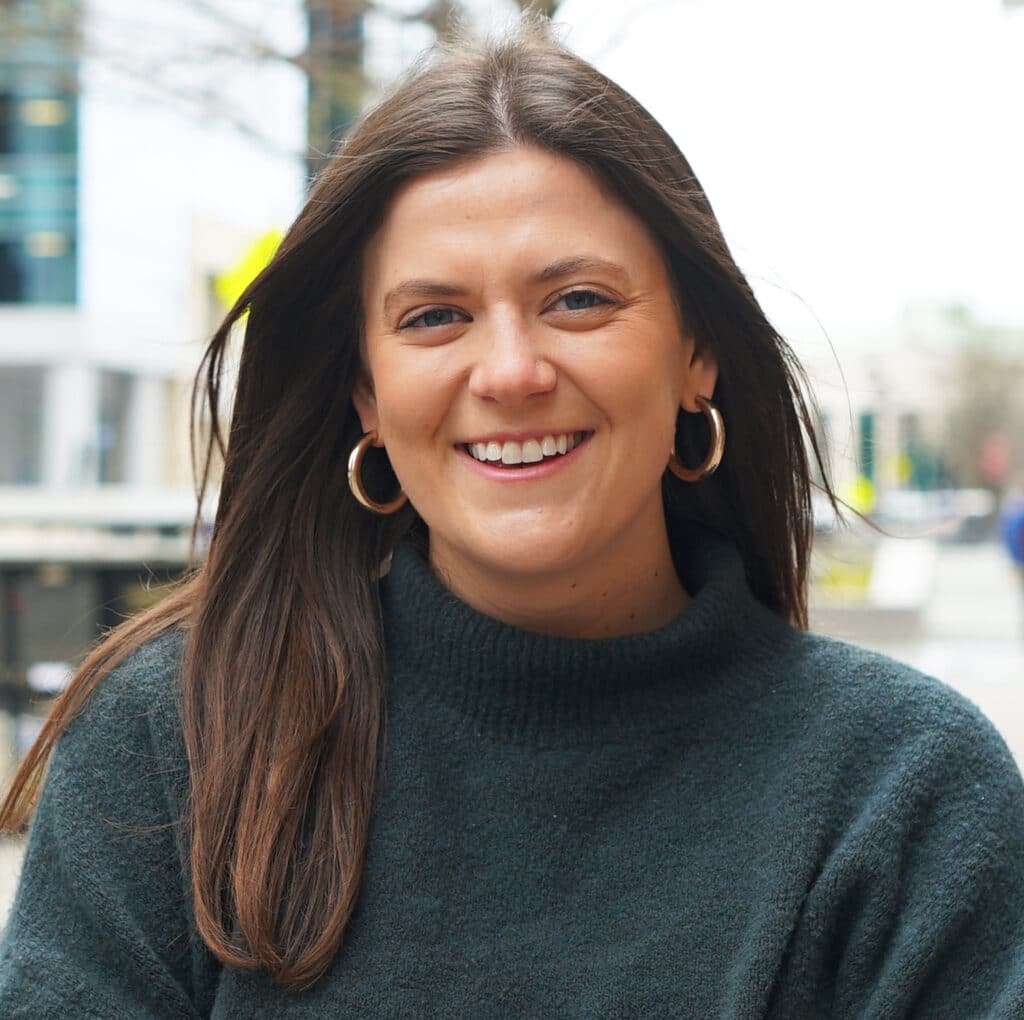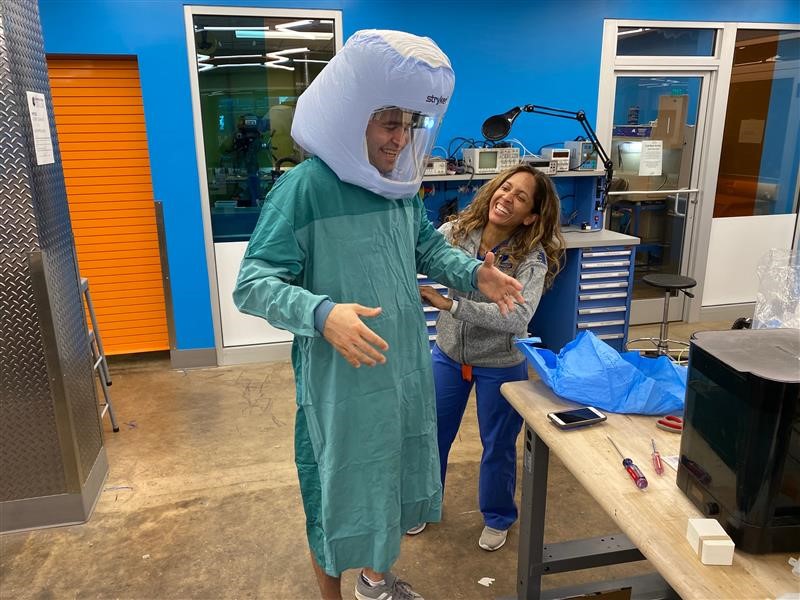
Inside the XPRIZE Pressure Cooker
A Duke-led team of engineers and conservationists race to beat the clock in the semifinals of a $10M competition to sample rainforest biodiversity.
Duke Engineering’s new Center for Engineering in the Global Community serves as a hub to advance engineering solutions that address pressing challenges in the Global South and Durham community

Duke Engineering is working toward the launch of a new “Center for Engineering in the Global Community,” which will span across and support all disciplines within the school. The brainchild of David Schaad, professor of the practice of civil and environmental engineering, and Ann Saterbak, professor of the practice of biomedical engineering, and featuring more than a dozen other research and teaching faculty within the school, the center seeks to take both a short- and long-view perspective on how to use or re-focus engineering for the “common good.”
The Center for Engineering in the Global Community is focused on creating a society that is more sustainable, equitable and resilient. It will serve as a hub for faculty, students and community partners to work together to advance engineering solutions that address pressing challenges in the Global South and the local Durham community. The center will support educational, research and outreach endeavors that seek to shift traditional engineering narratives and paradigms, integrating social context into the value proposition of engineering and design work, thereby broadening its relevance and impact around the world, particularly in low-income and resource-constrained environments.
The center’s launch is being made possible by initial support from the Beyond the Horizon initiative, an ambitious program that funds high-risk, high-reward projects aiming to make a significant, transformative impact on society. The first semester was a busy one for the team as they worked toward establishing a clear vision and scope of support. Part of the results of that effort is the recent hiring of Anna Dengler, a new associate in research in Pratt and program coordinator for the center.

Dengler was born and raised in Durham, earning her bachelor’s degree in communication and public relations from North Carolina State University in 2019. Following her junior year at NC State, she had the opportunity to spend a summer volunteering in Moshi, Tanzania alongside a local organization on various education and community empowerment-focused initiatives. Her experience connecting with the people of Tanzania and seeing first-hand some of the injustices and harsh realities they face on a daily basis inspired her to commit her career to making a positive impact on the global community.
Post-graduation, Dengler has worked as a marketer and storyteller for nonprofits whose missions include empowering families around the world to end extreme poverty as well as equipping local justice systems to fight human trafficking. When Dengler first learned about her new role at the center, she immediately knew she wanted to be a part of this exciting endeavor.
“The mission and vision of the center deeply resonate with me and align with my passion for sustainable development work with a focus on local leadership and community empowerment,” Dengler said. “I’ve committed my career so far to supporting impactful global causes, and I am excited to continue that as we work to launch this center.”
“The mission and vision of the center deeply resonate with me and align with my passion for sustainable development work with a focus on local leadership and community empowerment.”
Anna Dengler
Program Coordinator for the Center for Engineering in the Global Community
Dengler’s work entails broadening and deepening Duke’s connections to community partners in Durham and the Global South as well as connecting with and supporting participating faculty in their research, education and outreach efforts. She hit the ground running in her first few months in the role, meeting with over 30 individuals representing varying disciplines and efforts on campus to hear about their work and existing gaps in support. She also helped host a kick-off “visioning” meeting in December, gathering key feedback and insights from participating faculty, which she is still collecting to inform the future goals of the center.
One of the ways the center hopes to support faculty’s existing efforts is by shining a light on their impact. Read on to learn how two Pratt faculty members are making an impact right here on Duke’s campus and around the globe.
Eric Richardson, professor of the practice in biomedical engineering and founding director of Duke Design Health, is paving the way for a more sustainable, equitable future in healthcare. With research and teaching interests focused on medical device design and innovation in global markets, Richardson has initiated collaborations in Kenya, Tanzania, Sri Lanka, Costa Rica and several other countries. Richardson has worked alongside local professors and engineers around the world to build capacity for design solutions in their communities, creating their own innovation ecosystems. Notably, in Costa Rica, he and his research team designed and manufactured a small, portable containment room that empowers patients in Costa Rica to perform daily, life-saving peritoneal dialysis in their homes, saving them significant time and money while providing more accessibility to treatment.

Richardson’s long-term educational goals focus on broadening students’ thinking, encouraging them to consider the societal implications of their design choices and the localized innovation process that design requires. His curricular efforts are already beginning to make this a reality. In recent years, Richardson has shifted his courses to focus more on a “systems engineering” approach, integrating social and financial contexts into problem-solving and design. This method exposes students to designing for various contexts, particularly low-income or resource-constrained environments.
Richardson recently launched a new course called BME590: Systems Engineering in Global Health. In this class, Richardson challenges his students to think deeper about their design practices, digging into the “why,” and exploring important questions like: “Where do we intervene as engineers in the healthcare system? Where should we be designing products? For whom? To address which problem?” The course incorporates collaborative team projects and brings in speakers from their target markets, providing students with a diverse and immersive educational experience. Richardson believes that a center like Engineering in the Global Community could provide valuable help with supporting and implementing more transformative learning opportunities like this on campus.
Heileen Hsu-Kim, professor of civil and environmental engineering, is challenging traditional boundaries and creating solutions for global environmental and health issues at the intersection of engineering, chemistry and environmental health. An environmental engineer specializing in aquatic chemistry and geochemistry, Hsu-Kim’s work is a synergistic blend of scientific research and practical applications.

Her research projects showcase diverse interests, including mercury biogeochemistry, water quality impacts of coal ash disposal, resource recovery from geological wastes and trace metal/metalloid exposure health impacts. A unifying thread throughout her work is the application of chemical speciation for predicting and understanding the behavior of metals and minerals in the aquatic environment.
Hsu-Kim has spent over a decade studying the human and environmental impacts of small-scale gold mining in the Peruvian Amazon. This practice, which dates back centuries, is done in more than 75 countries (primarily in the Global South) and is very harmful to these regions and their indigenous communities due to the erosion of the local landscape as well as the mercury pollution and exposure caused by the practice. Small-scale gold mining also represents the largest anthropogenic source of mercury emissions to the entire atmosphere.
In her research, Hsu-Kim has collaborated with and worked alongside key research partner, William Pan, professor in the Duke Global Health Institute and Nicholas School of the Environment. They’ve worked together to form interdisciplinary student teams to travel and conduct research in the field. The efforts of Hsu-Kim’s and Pan’s research groups have led to transformative breakthroughs in understanding these pollutant metals and their distribution in water, soil and air.

Hsu-Kim’s diligent efforts in this space have also led to surprising revelations. A recent study she conducted on the impacts of prenatal exposure to toxic metals linked to artisanal gold mining in Madre de Dios, Peru, debunked the commonly believed adverse impact of mercury on newborn birth weight and gestational age. However, her research uncovered an unexpected perpetrator—lead, which is more likely consumed when people eat wild game containing small bullet fragments. This lead exposure was linked strongly to lower birth weights and earlier births, a finding that has significant implications for public health.
Hsu-Kim’s work serves as a potent reminder that the solutions to many of our world’s most pressing problems lie at the intersection of disciplines. Her work is changing lives, shaping policies and enlightening the next generation of environmental engineers.

A Duke-led team of engineers and conservationists race to beat the clock in the semifinals of a $10M competition to sample rainforest biodiversity.

Students constructing a 122-meter footbridge in Eswatini benefit from the work just as much as those who will use it on a daily basis.

The multi-institutional PreMiEr Engineering Research Center will rely on three life-sized test beds to examine how microbial communities affect human health in the places people live, work and play.